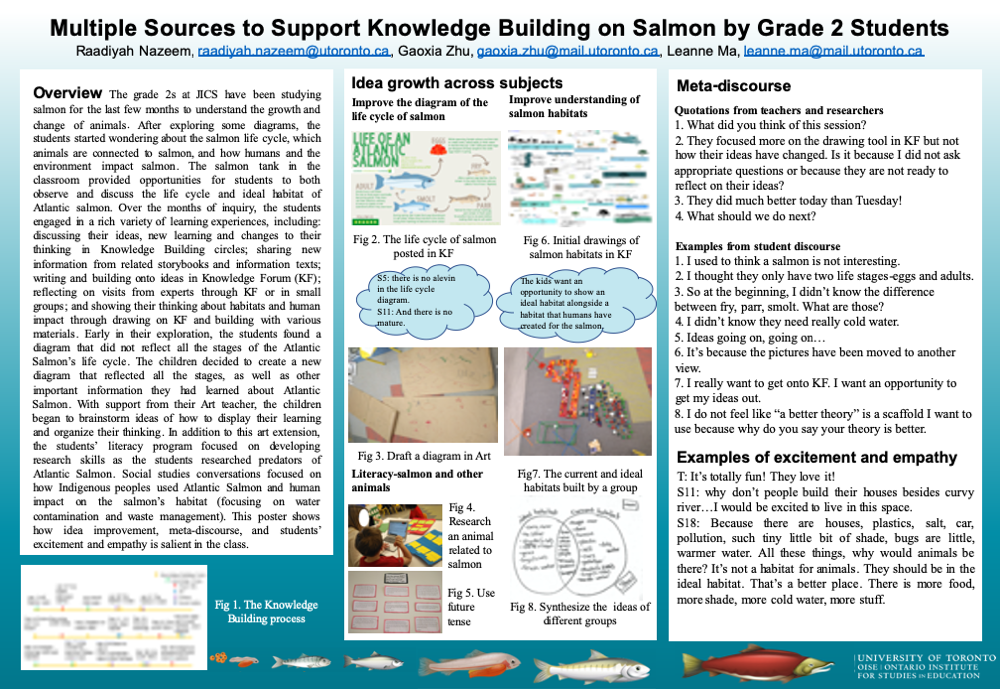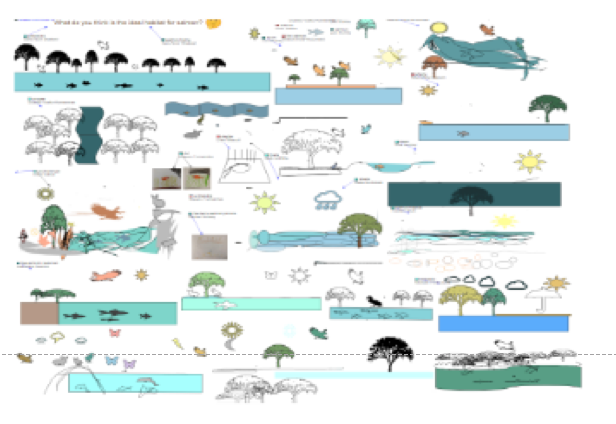
Nazeem, R., Zhu, G., & Ma, L. (2019, April). Multiple sources to support Knowledge Building on salmon by Grade 2 students. Poster presented at the American Education Research Association (AERA) conference. Toronto, Ontario.
The grade 2s at JICS have been studying salmon for the last few months to understand the growth and change of animals. After exploring some diagrams, the students started wondering about the salmon life cycle, which animals are connected to salmon, and how humans and the environment impact salmon. The salmon tank in the classroom provided opportunities for students to both observe and discuss the life cycle and ideal habitat of Atlantic salmon. Over the months of inquiry, the students engaged in a rich variety of learning experiences, including: discussing their ideas, new learning and changes to their thinking in Knowledge Building circles; sharing new information from related storybooks and information texts; writing and building onto ideas in Knowledge Forum (KF); reflecting on visits from experts through KF or in small groups; and showing their thinking about habitats and human impact through drawing on KF and building with various materials. Early in their exploration, the students found a diagram that did not reflect all the stages of the Atlantic Salmon’s life cycle. The children decided to create a new diagram that reflected all the stages, as well as other important information they had learned about Atlantic Salmon. With support from their Art teacher, the children began to brainstorm ideas of how to display their learning and organize their thinking. In addition to this art extension, the students’ literacy program focused on developing research skills as the students researched predators of Atlantic Salmon. Social studies conversations focused on how Indigenous peoples used Atlantic Salmon and human impact on the salmon’s habitat (focusing on water contamination and waste management). This poster shows how idea improvement, meta-discourse, and students’ excitement and empathy is salient in the class.
